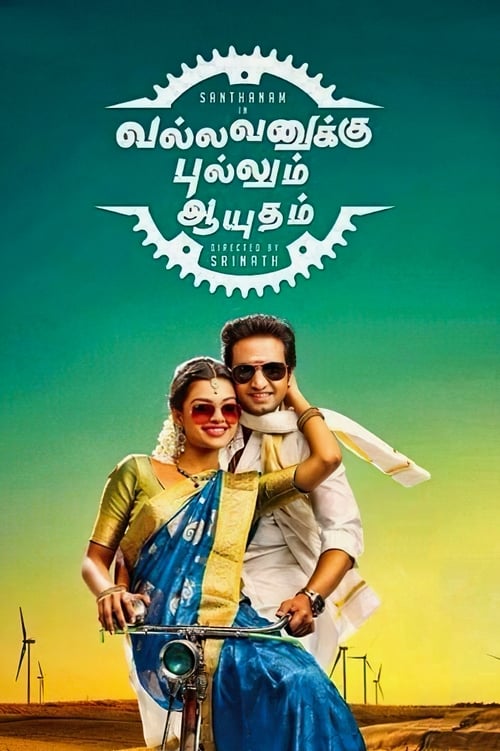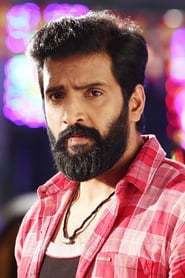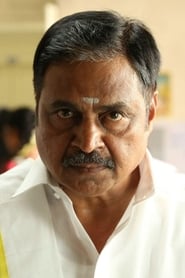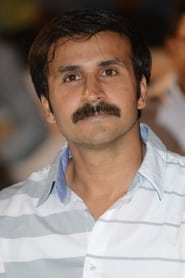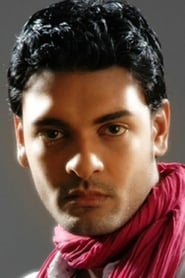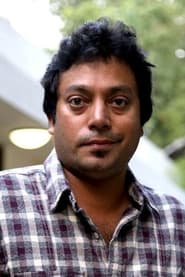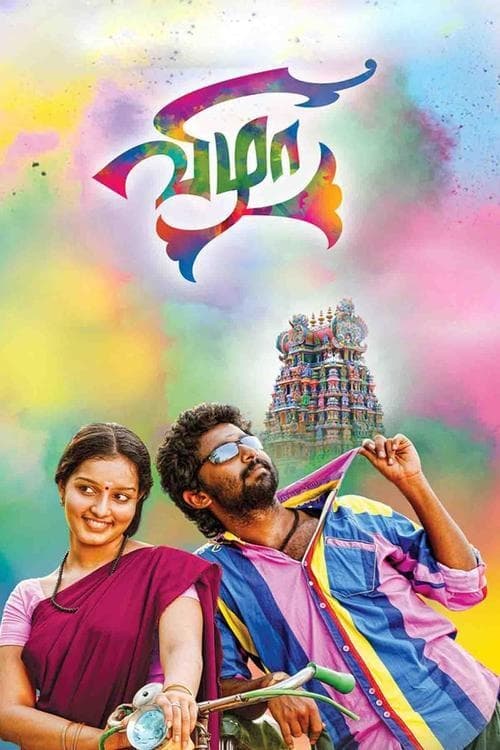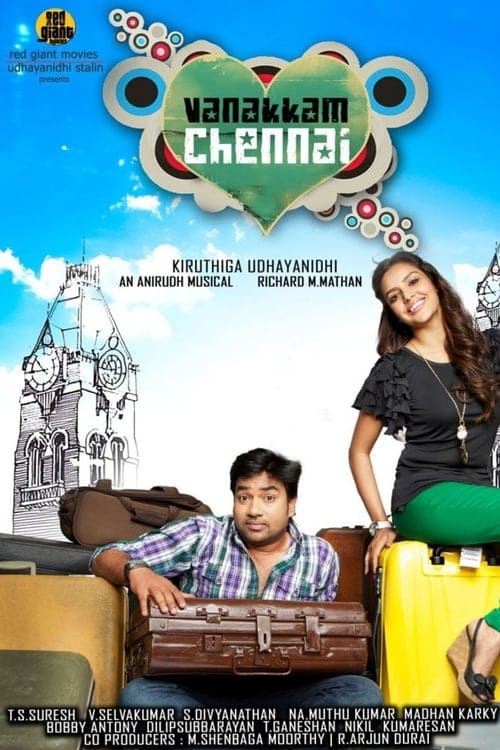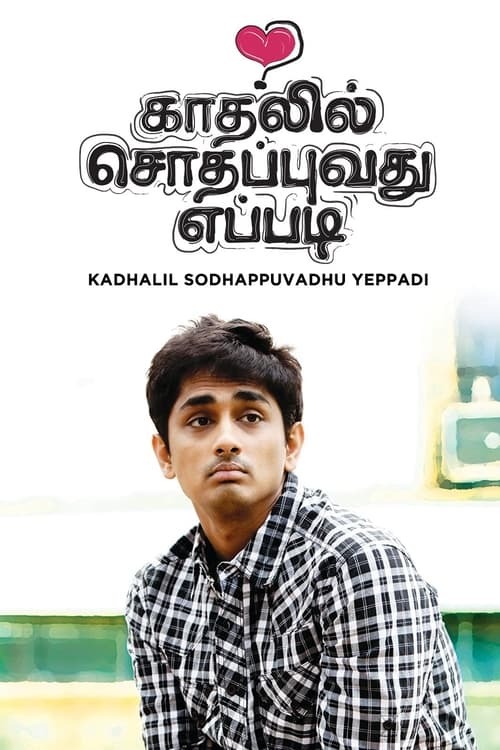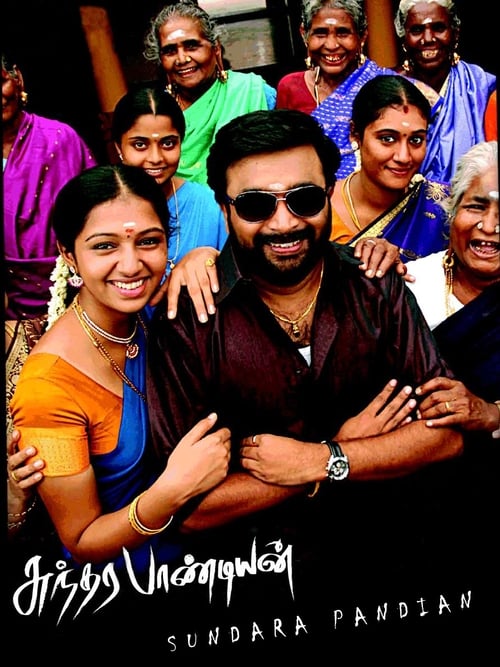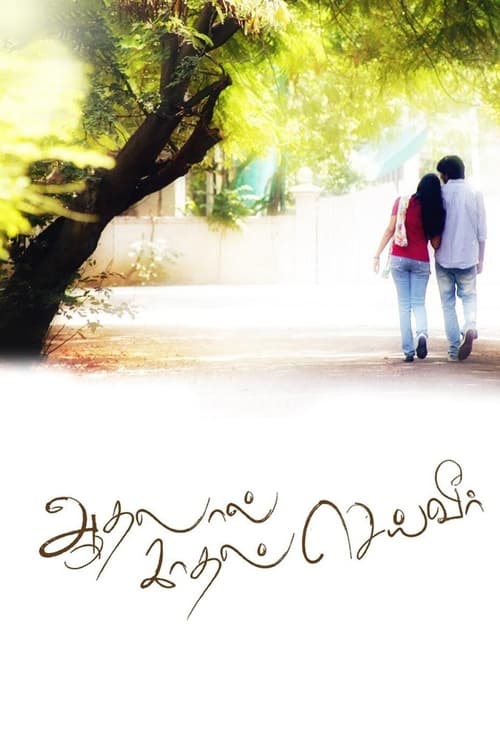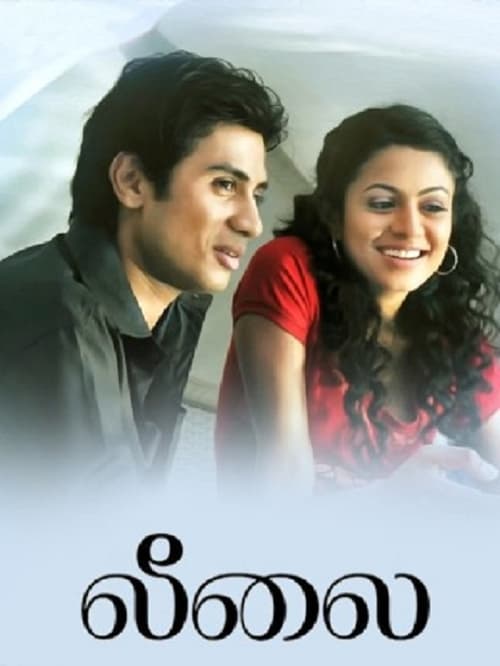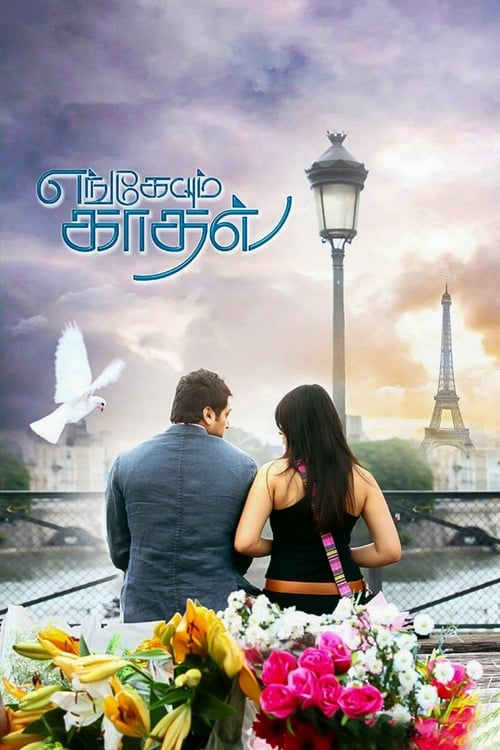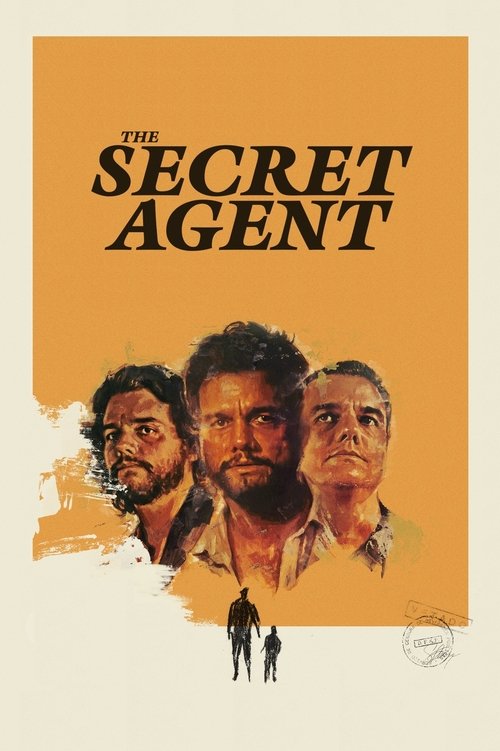No Image
Ask Your Own Question
What is the plot?
The sun rises over the dusty village of Arayangaadu, Tamil Nadu, casting long shadows across the fields and mud-brick houses. The year is not named, but the air is thick with the memory of violence. In the heart of the village, two families--Singaraayar's and the family of Shakthi's father--have been locked in a bitter feud for generations. On this fateful morning, the simmering hatred erupts into open violence. Men shout, fists fly, and weapons clash in a brutal brawl that echoes through the narrow lanes. Amid the chaos, two men fall: Singaraayar's brother is killed by Shakthi's father, and in retaliation, Shakthi's father is struck down. The feud is sealed in blood. Singaraayar, his face twisted with grief and rage, kneels beside his brother's body and swears vengeance. His two sons, Dharma and Kaali, echo his vow. "We will not rest until his blood is spilled," Singaraayar growls, his voice trembling with fury. Shakthi's mother, clutching her infant son, watches in horror. Knowing her child's life is now in danger, she flees Arayangaadu that very night, carrying Shakthi away to the safety of Chennai.
Twenty-seven years later, the city of Chennai pulses with life. In a cramped apartment, Shakthi (Santhanam), now a young man, wakes to the sound of his alarm. He is an orphan, scraping by as a water-can delivery boy, pedaling his bicycle through the crowded streets. His only companion is his trusty cycle, which he talks to as if it were a friend. "You're the only one who listens to me," he mutters, adjusting his helmet. The cycle seems to respond with a creak, and Shakthi laughs, a rare moment of lightness in his otherwise hard life. One day, his uncle visits with news: Shakthi's father left behind ancestral property in Arayangaadu. "Sell it," his uncle urges. "It could change your life." Shakthi hesitates, but the promise of financial relief is too strong. He packs his bags, boards a train, and sets off for the village he has never known.
On the train, Shakthi meets Vaanathi (Ashna Zaveri), a bright-eyed young woman traveling to Arayangaadu. They strike up a conversation, and Shakthi is charmed by her warmth and wit. "You're not like the others," she says, smiling. "You actually listen." Shakthi feels a spark of hope, a connection he hasn't felt in years. Unbeknownst to him, Vaanathi is the daughter of Singaraayar, the man who has sworn to kill him. When the train arrives in Arayangaadu, Shakthi and Vaanathi part ways, but their paths are about to cross again in ways neither could imagine.
Shakthi arrives in Arayangaadu, a place frozen in time. The village is quiet, but the air is heavy with unspoken tension. He makes his way to the ancestral property, only to find it entangled in legal disputes. Desperate for help, he seeks out Singaraayar, hoping the patriarch can guide him through the process. Singaraayar, a stern man with a commanding presence, agrees to assist. "You are welcome in my house," he says, his voice polite but distant. Shakthi is grateful and moves into Singaraayar's mansion, unaware that he has just entered the lion's den.
The mansion is a sprawling structure, its walls adorned with portraits of ancestors and symbols of family honor. Singaraayar's sons, Dharma and Kaali, watch Shakthi with suspicion. Vaanathi, who lives in the house, is delighted to see him again. "You're staying here?" she asks, her eyes lighting up. Shakthi nods, and their friendship deepens. But as days pass, Shakthi begins to notice strange things: the way Dharma glares at him, the way Kaali whispers to his father, the way Singaraayar's eyes linger on him a little too long. One evening, while eavesdropping, Shakthi overhears a conversation that chills him to the bone. "He's the son of the man who killed my brother," Singaraayar says, his voice low and dangerous. "We will wait until he steps outside. No blood will be spilled inside this house." Shakthi's heart pounds. He realizes the truth: Singaraayar and his sons plan to kill him, but they are bound by an ancient tradition that forbids violence within the walls of their home.
Shakthi's life becomes a game of survival. He uses every trick he can think of to stay inside the house, inventing excuses to avoid stepping outside. He pretends to be sick, claims he needs to rest, even feigns interest in household chores. Singaraayar and his sons grow increasingly frustrated. "Why won't he leave?" Dharma demands. "He's mocking us," Kaali replies. Shakthi's only ally is Vaanathi, who remains oblivious to the danger. She falls in love with him, drawn to his kindness and humor. "You make me happy," she tells him one evening, her voice soft. Shakthi feels a pang of guilt but says nothing. He knows the truth could destroy her.
The tension escalates. Singaraayar's men watch Shakthi day and night, waiting for him to make a mistake. Shakthi, meanwhile, grows more desperate. He confides in his bicycle, which seems to offer him comfort. "What do I do?" he asks. The cycle creaks, as if in response. Shakthi laughs, a nervous sound that echoes through the empty room. One night, he overhears Singaraayar and his sons plotting. "We'll trap him," Dharma says. "We'll make him come outside." Shakthi's blood runs cold. He knows he can't stay in the house forever.
The turning point comes when Shakthi decides to confront his fate. He tells Vaanathi he must leave, but she begs him to stay. "Don't go," she pleads. Shakthi hesitates, torn between his love for her and his need to survive. He makes his way to the bridge near the village, a high structure that overlooks a rushing river. Singaraayar and his men are close behind, ready to strike. Shakthi reaches the bridge, but Vaanathi follows him. "Let me come with you," she says, her eyes filled with hope. Shakthi shakes his head. "No," he says firmly. "You can't." Vaanathi's face falls. "Why?" she asks. Shakthi looks at her, his heart breaking. "Because I'm the one they want to kill," he admits. Vaanathi stares at him, stunned. "You're the son of the man who killed my uncle?" she whispers. Shakthi nods. Vaanathi feels a wave of betrayal and heartbreak. "You lied to me," she says, tears streaming down her face. Shakthi turns away, unable to bear her pain.
Singaraayar and his men arrive, their faces twisted with rage. "You thought you could escape?" Singaraayar shouts. Shakthi tries to run, but he is cornered. Dharma steps forward, his fists clenched. "You killed my uncle," he snarls. Shakthi raises his hands in surrender. "I didn't kill him," he says. "It was my father. I had nothing to do with it." Dharma doesn't listen. He punches Shakthi, sending him sprawling. Kaali joins in, and the two brothers beat Shakthi mercilessly. Shakthi tries to defend himself, but he is no match for their fury. He hits a rod during the fight, and the impact knocks him unconscious. Blood pours from his wounds as he collapses to the ground.
Vaanathi watches in horror. "Stop!" she screams, but her father and brothers ignore her. Shakthi lies motionless, his breath shallow. Vaanathi's heart shatters. She can't bear to see the man she loves die. Without thinking, she jumps into the river below, her body disappearing into the churning water. Singaraayar and his sons are stunned. "Vaanathi!" Singaraayar shouts, rushing to the edge of the bridge. Shakthi, despite his injuries, stirs. He sees Vaanathi in the river and, summoning every ounce of strength, dives in after her. The current is strong, but Shakthi manages to grab Vaanathi and pull her to safety. The family watches in shock as Shakthi collapses on the riverbank, his body battered but alive.
The scene is silent, the only sound the rush of the river. Singaraayar stares at Shakthi, then at Vaanathi, who is sobbing in Shakthi's arms. "Why did you save her?" Singaraayar asks, his voice trembling. Shakthi looks up, his eyes filled with pain but also determination. "Because I love her," he says. Vaanathi turns to her father, tears streaming down her face. "I love him too," she says. "I don't care about the feud. I want to be with him." Singaraayar is speechless. Dharma and Kaali exchange glances, their anger fading. The weight of the feud, the years of hatred, suddenly seems meaningless.
Singaraayar kneels beside Shakthi. "You saved my daughter," he says. "You could have let her die, but you didn't." Shakthi nods weakly. "I couldn't let her die," he says. Singaraayar helps Shakthi to his feet. "The feud ends here," he declares. "No more bloodshed. No more hatred." Dharma and Kaali nod in agreement. Vaanathi embraces Shakthi, her tears mixing with his blood. The family, once divided by violence, is united by love.
The film ends with a wedding. Shakthi and Vaanathi stand together, their hands clasped, as the village celebrates. Singaraayar, Dharma, and Kaali watch with smiles, their faces no longer twisted with anger. The ancestral property is sold, and Shakthi uses the money to start a new life. The talking bicycle is there, creaking in approval. The feud is over, replaced by peace and hope. As the sun sets over Arayangaadu, Shakthi and Vaanathi walk hand in hand, their future bright. The village, once torn apart by hatred, is now a place of unity and love.
What is the ending?
In the ending of "Vallavanukku Pullum Aayudham," the protagonist, Vallavan, confronts the antagonist, who has been causing trouble throughout the film. After a series of comedic and dramatic events, Vallavan manages to outsmart the antagonist, leading to a resolution where he wins the love of his romantic interest, and the conflicts are resolved in a light-hearted manner.
As the film approaches its climax, Vallavan, played by Silambarasan, finds himself in a tense situation with the antagonist, who has been a source of chaos and conflict throughout the story. The scene unfolds in a vibrant setting, filled with colorful decorations and a lively atmosphere, as the characters gather for a final confrontation. Vallavan, determined and confident, steps forward, ready to face the challenges that have plagued him.
The antagonist, a menacing figure, stands defiantly, surrounded by his loyal followers. Tension fills the air as Vallavan's friends rally behind him, showcasing their unwavering support. The audience can feel Vallavan's internal struggle; he is not just fighting for himself but also for the love of his life, who has been caught in the crossfire of their rivalry.
In a series of comedic exchanges, Vallavan uses his wit and charm to turn the tables on the antagonist. He cleverly outmaneuvers him, leading to a humorous yet satisfying resolution. The antagonist, realizing he has been bested, is left flustered and humiliated, while Vallavan's friends cheer him on, celebrating his victory.
As the dust settles, Vallavan approaches his love interest, who has been anxiously watching the events unfold. Their eyes meet, and a sense of relief washes over them both. Vallavan expresses his feelings, and in a heartfelt moment, they share a tender embrace, solidifying their bond. The audience can sense the joy and fulfillment in Vallavan's heart, as he has not only triumphed over his adversary but also secured the love he has long desired.
In the final scenes, the film wraps up with a celebratory atmosphere. Vallavan and his friends are seen enjoying a festive gathering, laughter and music filling the air. The antagonist, now a mere shadow of his former self, is left to ponder his defeat, while Vallavan basks in the warmth of friendship and love.
The fate of each main character is clear: Vallavan emerges victorious, having proven his worth and secured his love. His friends stand by him, celebrating their camaraderie. The antagonist, on the other hand, is left to deal with the consequences of his actions, a reminder of the film's light-hearted yet poignant message about love, friendship, and the triumph of good over evil.
Is there a post-credit scene?
In the movie "Vallavanukku Pullum Aayudham," there is indeed a post-credit scene. After the main credits roll, the scene opens with a humorous twist that reflects the film's comedic tone.
In this scene, the protagonist, who has faced numerous challenges throughout the film, is seen in a light-hearted situation. He is engaged in a playful banter with his friends, showcasing their camaraderie. The atmosphere is filled with laughter as they reminisce about the events that transpired during the film.
Suddenly, a character from the film, who had been a source of conflict, makes an unexpected appearance. This character is portrayed in a comical light, adding to the humor of the moment. The protagonist and his friends react with exaggerated surprise, leading to a series of funny exchanges that highlight their personalities and relationships.
The scene encapsulates the film's essence, leaving the audience with a sense of joy and satisfaction, reinforcing the themes of friendship and resilience that run throughout the narrative. It serves as a light-hearted conclusion, inviting viewers to leave the theater with smiles on their faces.
What motivates the character of Vallavan throughout the film?
Vallavan, played by Silambarasan, is driven by his desire to prove himself and win the love of his childhood crush, a girl named Karthika. His motivations are deeply rooted in his need for acceptance and validation, both from Karthika and his peers. As he navigates various challenges, his determination to impress Karthika often leads him into humorous and precarious situations.
How does Vallavan's relationship with his father influence his actions?
Vallavan's relationship with his father is strained, as his father, portrayed as a strict and traditional man, disapproves of Vallavan's carefree lifestyle and aspirations. This conflict drives Vallavan to rebel against his father's expectations, seeking to carve out his own identity while simultaneously yearning for his father's approval. This dynamic adds depth to Vallavan's character, showcasing his internal struggle between familial duty and personal ambition.
What role does the character of Karthika play in Vallavan's journey?
Karthika, played by the actress Nayanthara, serves as the catalyst for Vallavan's transformation. Her initial indifference towards Vallavan's affections pushes him to take drastic measures to win her over. As the story unfolds, Karthika's character evolves from a mere object of desire to a significant influence on Vallavan's growth, challenging him to confront his flaws and ultimately inspiring him to become a better person.
How does Vallavan's friendship with his sidekick contribute to the plot?
Vallavan's friendship with his sidekick, portrayed by a comedic actor, adds a layer of humor and camaraderie to the film. This character often provides comic relief and serves as a sounding board for Vallavan's ideas and schemes. Their dynamic showcases the importance of friendship in Vallavan's life, as the sidekick encourages him to pursue his dreams while also getting him into trouble, which propels the narrative forward.
What challenges does Vallavan face in his pursuit of Karthika?
Throughout the film, Vallavan faces numerous challenges in his pursuit of Karthika, including misunderstandings, rival suitors, and his own insecurities. Each obstacle tests his resolve and creativity, leading to a series of comedic yet poignant moments. Vallavan's journey is marked by his attempts to impress Karthika, often resulting in slapstick situations that highlight his determination and the lengths he is willing to go to win her heart.
Is this family friendly?
"Vallavanukku Pullum Aayudham," released in 2014, is a Tamil comedy film that generally maintains a light-hearted tone. However, there are a few aspects that may be considered objectionable or upsetting for children or sensitive viewers:
-
Mild Language: The film contains some instances of mild profanity and slang that may not be suitable for younger audiences.
-
Romantic Situations: There are scenes that depict romantic relationships and flirtation, which may not be appropriate for all children.
-
Physical Comedy: The film includes slapstick humor and physical comedy that, while intended to be funny, may be perceived as excessive or inappropriate by some viewers.
-
Conflict and Confrontation: There are moments of conflict between characters that may involve shouting or aggressive behavior, which could be unsettling for sensitive viewers.
-
Cultural References: Some jokes and cultural references may not be easily understood by younger audiences, potentially leading to confusion.
Overall, while the film is primarily a comedy, these elements may warrant parental guidance for younger viewers.

